The livelihoods of many Indonesian coastal communities, like the Perigi Raja and Sapat communities of Indragiri Hilir Regency of Riau Province, depend on mud crab fisheries to meet their daily needs. The regency has extensive mangrove forests covering up to 129,000 hectares. This huge area is a prime habitat for catfish, shrimp, and mud crabs, which allows the community to both enjoy food and gain income from mud crab fishing.
Mangroves are an important habitat that provides crucial nursery and feeding grounds for other aquatic animals and absorbs carbon from the atmosphere. They also protect the community from strong waves, land erosion, and sea-level rise. Because the mangrove mud crab has a high market value, the Perigi Raja and Sapat fishers are keen to exploit it. Scientifically known as the Scylla species, sales from across Indonesia combine to an export value of up to USD 154 million per year.
The mangrove habitats that support mud crab fisheries are crucial and under threat. Illegal and destructive fishing, including poison to catch shrimp and other fish, is common, especially in the Sungai Batang area. Illegal logging of mangroves is also a cause for community concern because logging has left parts of the coastline so bare that some fishers’ houses now risk being destroyed by waves.
To solve this problem, Pesisir Lestari (YPL) collaborated with Mitra Insani (YMI) to lead a mangrove management process that engages communities in forest management. The partnership provides training on mud crab species identification and data collection using KOBO – a mobile tool. The participatory process empowers communities to take active roles in management and gives them a strong sense of ownership.
We are delighted to be involved in the implementation and participation of fisheries monitoring, as the users of mangrove crab resources. Through this activity, we can also increase our capacity and enthusiasm in overseeing the management of the mangrove crab fishery in the mangrove ecosystem in Sapat Village that is also under the Village Forest management,” said Mr. Andi Masrapi, a mudcrab collector and data collector.
The community’s reliance on mud crab fisheries, the high-income potential of this fishery, and their engagement so far make us hopeful that the community will see both economic and environmental benefits of management, catalysing the long-term sustainable management of these hugely important areas. We believe that community engagement and the participatory process are assets in engaging communities, helping them achieve sustainability soon and look forward to continuing to support YMI and the fishers alike to continue on this journey.
By Indah Rufiati (Fisheries Lead) and Faridz Fachri (Fisheries Improvement Technician) – Indonesia.


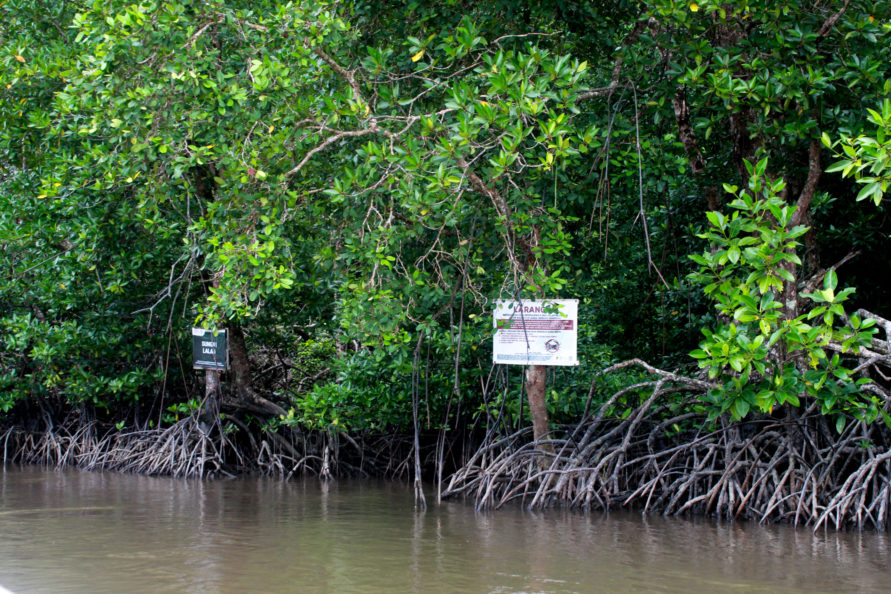
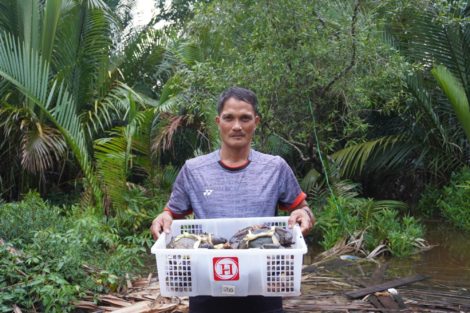
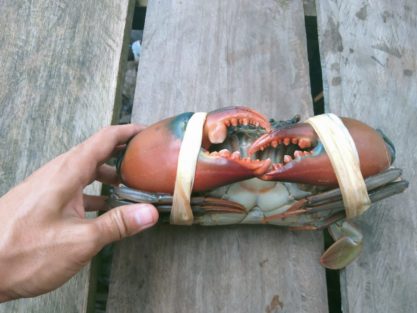
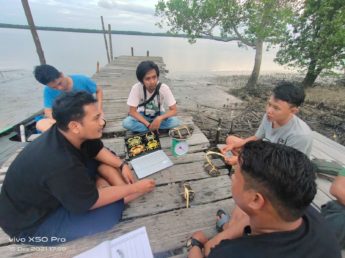
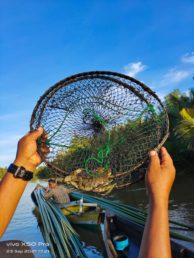
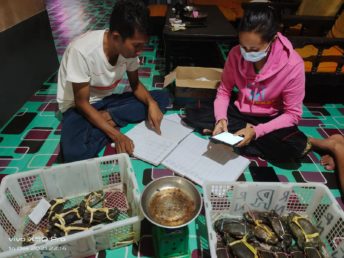
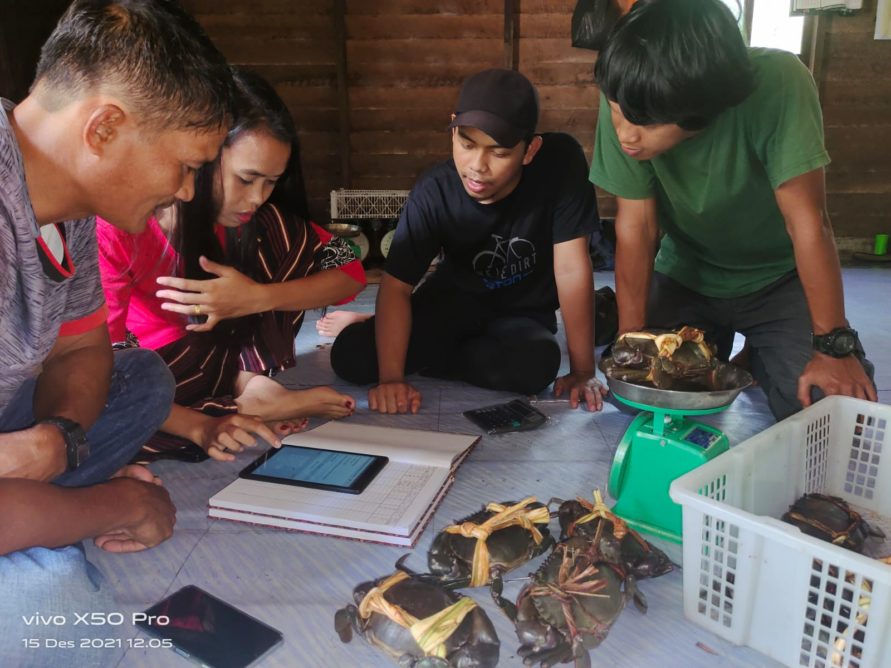
Boa tarde,
Somos o Centro de Informacao de Mangal em Mocambique que esta en fase de implementacao na area de conservavao de Mangrove de forma sustentavel.
Estamos feliz em trocar de sinergias sustentaveis para projecto de sustentabilidade usando os Ecossistema de Mangal.
realmente estamos interessaso na producao e comercializao do caranjeigo do Mangal.